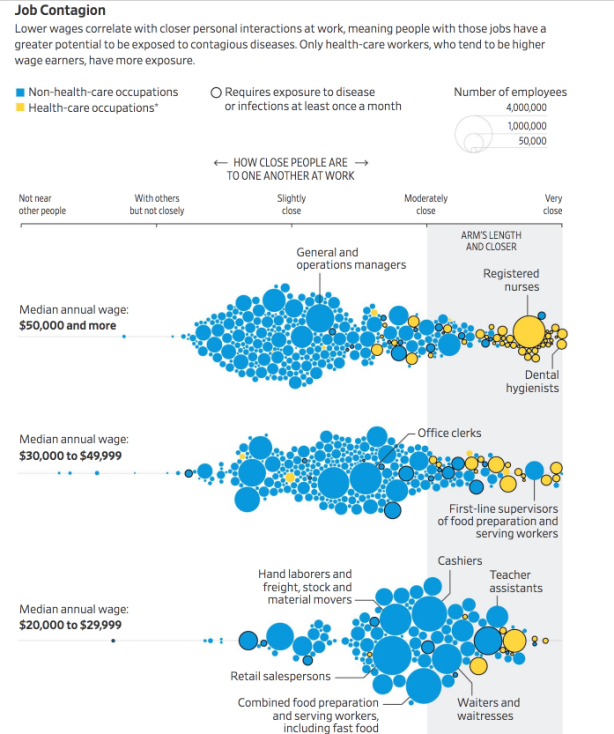From David Ruccio source Evidence thus far suggests that low-wage workers, most of whom can’t perform their labor remotely, are more likely to either lose their jobs (because of shutdowns, especially in leisure and hospitality) or be forced to continue to work in close proximity to others (either coworkers or customers), and therefore are more likely to contract coronavirus. Moreover, if and when the economy recovers, employers are likely to adopt labor-saving technologies and other forms of automation in sectors outside the work-from-home economy. What that means is that many of the low-wage jobs lost in this downturn will never come back.
Topics:
David F. Ruccio considers the following as important: Uncategorized
This could be interesting, too:
tom writes The Ukraine war and Europe’s deepening march of folly
Stavros Mavroudeas writes CfP of Marxist Macroeconomic Modelling workgroup – 18th WAPE Forum, Istanbul August 6-8, 2025
Lars Pålsson Syll writes The pretence-of-knowledge syndrome
Dean Baker writes Crypto and Donald Trump’s strategic baseball card reserve
from David Ruccio
Evidence thus far suggests that low-wage workers, most of whom can’t perform their labor remotely, are more likely to either lose their jobs (because of shutdowns, especially in leisure and hospitality) or be forced to continue to work in close proximity to others (either coworkers or customers), and therefore are more likely to contract coronavirus.
Moreover, if and when the economy recovers, employers are likely to adopt labor-saving technologies and other forms of automation in sectors outside the work-from-home economy. What that means is that many of the low-wage jobs lost in this downturn will never come back.

